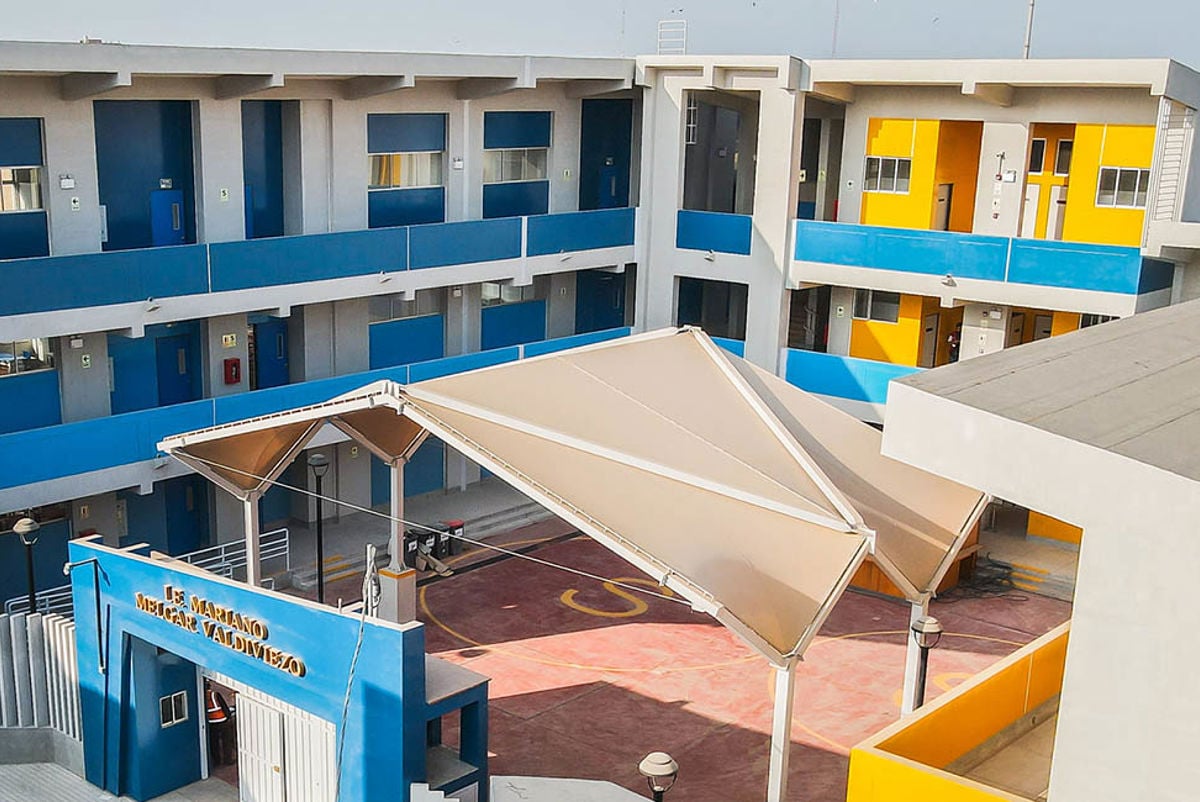Educational infrastructure
Educational infrastructure and access to learning are central to how any country invests in its future.

All children have a basic right to education, in schools and campuses that are fit for purpose and where they can thrive in an uncertain world. Quality schools are a key part of delivering quality education. We believe that quality schools embody six key principles:
- safer and resilient to shocks and stresses
- environmental sustainability
- culturally and socially appropriate
- inclusive, accessible and child friendly
- adaptable and flexible
- compliant and innovative
Quality schools
Safety, security, and resilience are paramount. By understanding current and future risks, as well as the impacts of climate change, we ensure that schools create a secure environment for learning. Environment sustainability is integral to our approach. We plan and design schools and campuses in a way that minimises environmental impact, considering the site, materials, resources, construction methods and energy demand to create a more sustainable future.
Cultural and social appropriateness are also essential considerations. Recognising the diverse needs and preferences within communities, we strive to provide schools that resonate within the local context and community. Developing flexible, inclusive and accessible learning spaces that work well for all children, is key.
We work to ensure our projects meet any local regulatory requirements, whilst bringing in international good practice, while our innovation drives us to continually improve and adapt to emerging challenges. In our commitment to excellence, we integrate these principles throughout the project lifecycle, from strategic planning to operation.
It’s vital that any approach to educational development can be delivered and replicated at scale. We have extensive experience advising, planning and supporting governments and other implementation bodies to deliver major school infrastructure programmes.
This includes:
- evaluating school infrastructure in low and middle income countries to develop a comprehensive baseline to inform improvement plans.
- developing prioritised intervention, implementation and investment plans for improved school infrastructure, (across safety and resilience, energy efficiency or improved learning environments).
- providing recovery and reconstruction after natural disasters of schools, incorporating ‘building back better’ approaches to produce more resilient educational infrastructure.
The Rwanda Institute of Conservation Agriculture is a new university in the south of Rwanda. The project was conceived and is being funded by the Howard G Buffet Foundation, whose mission is to address food security for the world’s most impoverished and marginalised populations. Arup provided sustainable building design, infrastructure design, structural and civil engineering on this important project.
The campus consists of 20,350m2 of buildings over a 1300 hectare site, with buildings containing academic spaces, housing for staff, students and livestock, with a solar array providing clean energy. The project draws upon what is available locally touching the ground lightly and even looks to preserve natural habitats. The project will create significant social value whilst protecting soil and water, balancing the needs of society and the environment and delivering great social value.
Get in touch with our team
International development
We offer a comprehensive array of international development services, reflecting the full breadth of Arup's technical and consultancy expertise.

